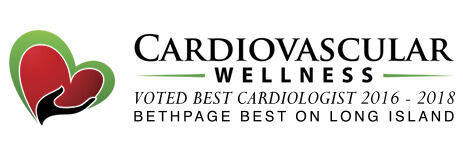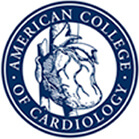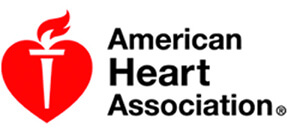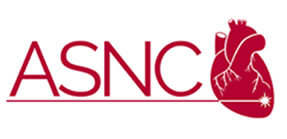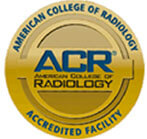Are At-Home Blood Pressure Monitors Accurate?
- Posted on: Feb 6 2023
If you’ve been diagnosed with high blood pressure – or you’re keeping an eye on your numbers as a preventive step – you may have considered buying a home blood pressure monitor.
They’re easy to find, simple to use, and recommended by many doctors. However, a common question we hear from patients at Cardiovascular Wellness Specialty Care, P.C., is: Can I really trust the numbers I get at home?
The short answer: Yes, in many cases – but with a few important caveats. Contact us today to learn more.
Why Home Monitoring Matters
High blood pressure (hypertension) doesn’t always come with symptoms. That’s why it’s often called a “silent” condition. But just because you don’t feel it doesn’t mean it isn’t doing damage. Uncontrolled high blood pressure raises your risk of heart attack, stroke, kidney damage, and other serious issues.
You take an active role in your heart health when you check your blood pressure at home. This simple habit helps you:
- Monitor your response to medication
- Catch rising trends early
- Provide your cardiologist with more data over time
- Stay engaged and informed in your care
For many of our patients in Hicksville, New Hyde Park, and across Nassau County, daily home readings play a significant role in creating a personalized, data-driven treatment plan.
So… Are They Accurate?
Most modern home blood pressure monitors can provide accurate readings, but not all devices are equally reliable. According to the American Heart Association, upper-arm cuff monitors are the preferred choice for home use.
Wrist and finger monitors are more prone to inaccuracies because they’re sensitive to positioning and anatomical differences, which makes them harder to use correctly and consistently.
It’s also worth noting that even the best device in the world won’t be accurate if it’s not used properly. That’s where guidance from your cardiologist can make a big difference.
Common Causes of Inaccurate Readings
When patients come to us with concerns about their at-home numbers, we often discover the issue isn’t the monitor itself, but how it’s being used. Some of the most common factors that affect accuracy include:
- Improper Cuff Size – A cuff that’s too small or too large can skew your results
- Incorrect Arm Positioning – Your arm should be supported at heart level
- Movement or Talking During the Reading – Even slight motion can throw off results
- Full Bladder or Recent Exercise – Both can temporarily raise blood pressure
- Cuff Placement Over Clothing – Always place the cuff on bare skin
Our team can walk you through a proper technique during your appointment so the readings you get at home are as reliable as possible.
How At-Home Monitoring Compares to In-Office Readings
You might notice your blood pressure at home seems lower than what we record in our office. This isn’t uncommon, and it doesn’t mean your monitor is wrong.
Some patients experience what’s known as “white coat hypertension,” where blood pressure rises in a clinical setting due to stress or anxiety. Others may have masked hypertension, where their blood pressure appears normal at the doctor’s office but is actually elevated throughout the day.
Home monitoring helps us understand the full picture and is especially helpful when we’re fine-tuning medications or trying to confirm a diagnosis.
Choosing a Reliable Home Monitor
If you’re shopping for a home monitor, here are a few tips to help you choose a trustworthy one:
- Look for upper-arm cuff models, not wrist or finger devices
- Choose a model validated by a recognized medical organization, such as the Association for the Advancement of Medical Instrumentation (AAMI) or STRIDE BP, the International Consortium for Blood Pressure Validation
- Avoid over-complicated features – you want easy-to-read displays and clear instructions
- Bring your monitor to your appointment so we can check its accuracy against our readings
At Cardiovascular Wellness Specialty Care, P.C., we’re always happy to recommend models we trust based on our clinical experience.
Understanding the Role of Daily Fluctuations
It’s entirely normal for your blood pressure to change throughout the day. Activity, sleep, stress, meals, and even weather can influence your numbers. That’s why a single reading isn’t usually enough to draw conclusions. Instead, we encourage patients to:
- Take two readings in the morning and two in the evening
- Record the average of the two each time
- Track readings for at least a week before your follow-up visit
These patterns give us a better view of how your heart is functioning outside the clinic – and help us tailor your care with confidence.
When to Be Concerned
It’s not unusual to see an occasional high number, especially if you’re stressed, didn’t sleep well, or recently exercised. But if your systolic (top) number is consistently over 140 mmHg, or your diastolic (bottom) number is regularly above 90 mmHg, it’s time to check in.
We also want to hear from you if:
- Your readings are suddenly much higher or lower than usual
- You feel dizzy, faint, short of breath, or experience chest pain
- You’re unsure how to adjust your medications based on your numbers
You should never feel like you’re managing high blood pressure on your own. We’re your partners in this.
How We Use Your At-Home Readings
Your home blood pressure readings play a vital role in shaping your treatment plan. They help us evaluate how well your medication is working and guide us in making any necessary adjustments. That data gives us a clearer, real-time picture of how your heart responds outside the office.
Depending on your care plan, we may ask you to share your readings during follow-up visits or upload them digitally. The more information we have, the more personalized your treatment will become.
Trusted Blood Pressure Guidance in Nassau County and Long Island
At-home blood pressure monitors can be a powerful tool in managing hypertension when they’re accurate and used correctly. They empower you to be an active participant in your own heart health and help us make smarter, more informed decisions about your care.
At Cardiovascular Wellness Specialty Care, P.C., we believe that good cardiac care starts with good communication. We’ll help you understand how to use your home monitor with confidence – and how to interpret what those numbers really mean for your health.
You’re more than a diagnosis – you’re a person with goals, routines, and loved ones who depend on you. Let’s work together to keep your heart strong for all of it. Reach out today for your consultation.
Posted in: Heart Health
